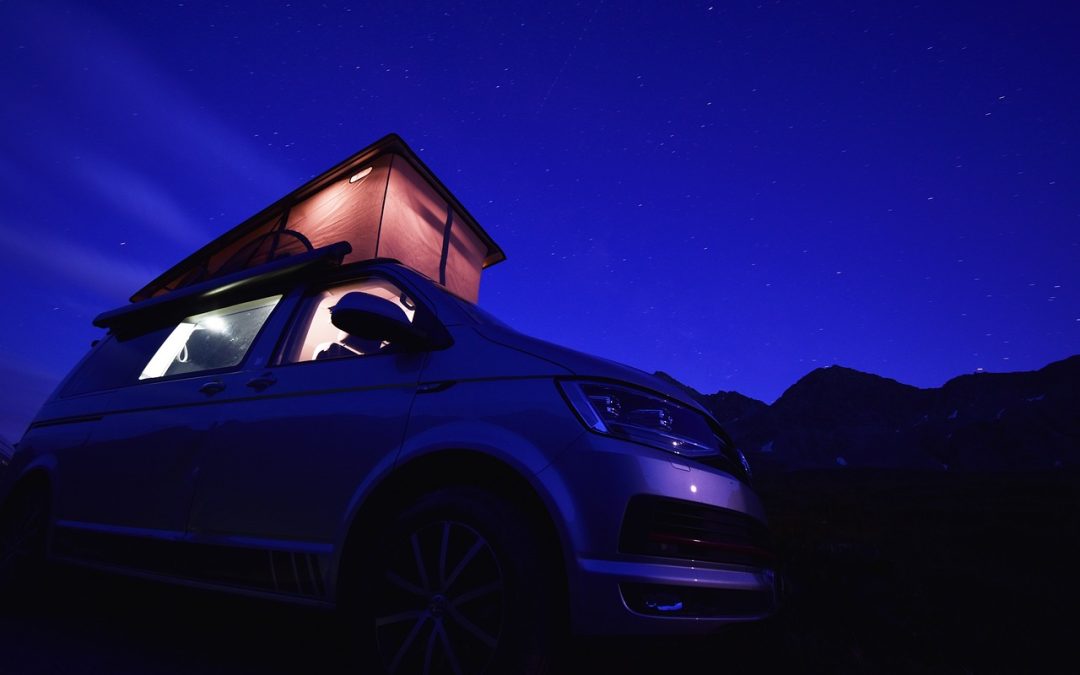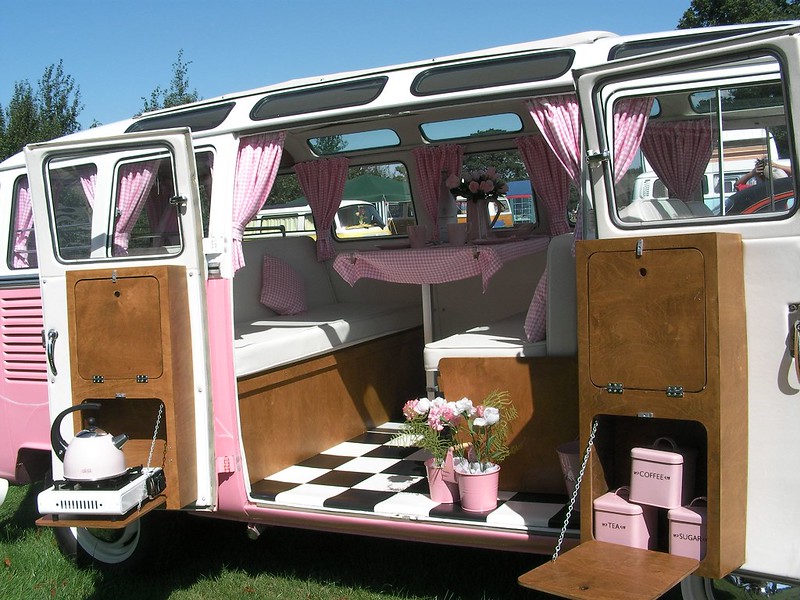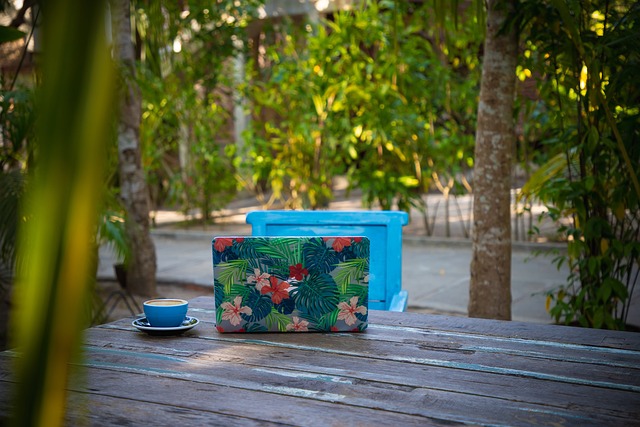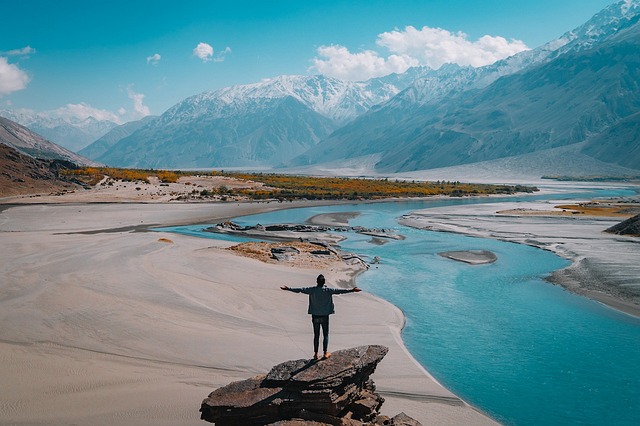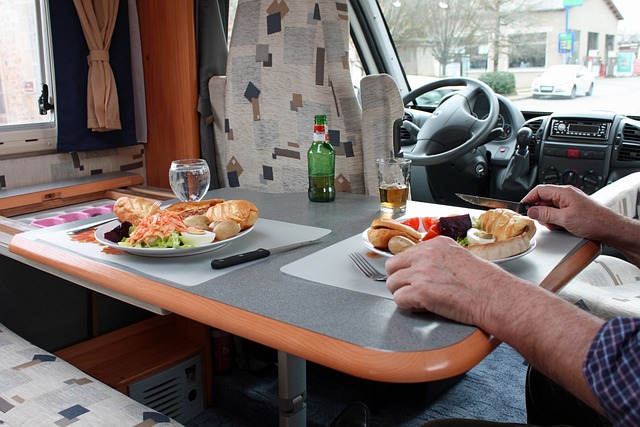The open road, the freedom to roam, the allure of new experiences around every bend—these are the siren calls of the RV nomad. But what does it really mean to adopt this lifestyle, particularly in a Class B RV?
In this article, we will explore the pros and cons of living as a Class B RV nomad. We will discuss the freedom and flexibility that this lifestyle offers, as well as the challenges and limitations. We will also provide some tips for those who are considering this lifestyle.
Understanding the Nomadic Lifestyle
What is a Class B RV?
A Class B RV, often referred to as a “camper van,” is the smallest of the motorized RV classes. Despite their compact size, these vehicles are fully self-contained with a kitchen, bathroom, and sleeping area. They offer a balance between comfort and mobility, making them a popular choice among solo travelers and couples.
Here are some of the benefits of living in a Class B RV:
- Freedom and flexibility: You can go wherever you want, whenever you want. You’re not tied down to a lease or a mortgage, and you can easily change your plans if you need to.
- Experiencing new places: You’ll get to see new places and meet new people. You’ll have the opportunity to explore different cultures and learn about different ways of life.
- Affordability: Class B RVs are generally more affordable than larger RVs. This makes them a good option for people who are on a budget.
However, there are also some challenges to living in a Class B RV:
- Limited space: Class B RVs are small, so you’ll have to be organized and efficient with your space.
- Lack of privacy: If you’re traveling with other people, you may find that you have to share a small space.
- Maintenance: Class B RVs require regular maintenance, so you’ll need to be prepared to do some work on your own.
Overall, living in a Class B RV can be a great way to experience the freedom and flexibility of the open road. However, it’s important to be aware of the challenges before you make the decision to live this lifestyle.
Image by Peggy und Marco Lachmann-Anke from Pixabay
The Nomadic Lifestyle: An Overview
The nomadic lifestyle is about embracing freedom and flexibility. It’s about breaking free from the conventional 9-to-5 routine and exploring the world at your own pace. For some, it’s a temporary adventure; for others, it’s a lifelong commitment.
There are many different ways to live a nomadic lifestyle. Some people choose to travel full-time in an RV or van. Others choose to work remotely from different locations around the world. And still others choose to live a more transient lifestyle, moving from place to place as they see fit.
No matter how you choose to live it, the nomadic lifestyle offers a unique set of challenges and rewards. On the one hand, you’ll have the freedom to experience new places and cultures, meet new people, and make new friends. On the other hand, you’ll also have to deal with the challenges of living in a small space, finding work, and maintaining a sense of community.
If you’re considering living a nomadic lifestyle, there are a few things you should keep in mind. First, make sure you have a plan. What are your goals? What are your resources? How will you make money? Second, be prepared for change. Things will not always go according to plan, so you need to be flexible and adaptable. Third, enjoy the journey! The nomadic lifestyle can be an amazing adventure, so make sure you savor every moment.
Here are some of the benefits of living a nomadic lifestyle:
- Freedom and flexibility: You can go wherever you want, whenever you want. You’re not tied down to a lease or a mortgage, and you can easily change your plans if you need to.
- Experiencing new places: You’ll get to see new places and meet new people. You’ll have the opportunity to explore different cultures and learn about different ways of life.
- Affordability: Living a nomadic lifestyle can be more affordable than living a traditional lifestyle. You can save money on rent, utilities, and transportation.
- Personal growth: Living a nomadic lifestyle can help you to grow as a person. You’ll learn to be more independent and resourceful. You’ll also learn to appreciate the simple things in life.
Here are some of the challenges of living a nomadic lifestyle:
- Limited space: If you’re living in a small space, you’ll have to be organized and efficient with your belongings.
- Lack of privacy: If you’re traveling with other people, you may find that you have to share a small space.
- Homesickness: It can be difficult to be away from your friends and family for extended periods of time.
- Loneliness: If you’re traveling alone, you may find that you feel lonely at times.
- Maintenance: RVs and vans require regular maintenance, so you’ll need to be prepared to do some work on your own.
Overall, the nomadic lifestyle can be a great way to experience the freedom and flexibility of the open road. However, it’s important to be aware of the challenges before you make the decision to live this lifestyle.
Image by Sofia Cristina Córdova Valladares from Pixabay
Pros of Living as a Class B RV Nomad
Freedom and Flexibility
One of the biggest advantages of being a Class B RV nomad is the unparalleled freedom and flexibility. You can travel wherever you want, whenever you want. You’re not tied down to a specific location or schedule.
If you don’t like your current surroundings, you can simply start the engine and drive to a new destination. This can be a great way to escape the hustle and bustle of everyday life and explore new places and cultures.
Experiencing New Places
Another great advantage of living as a Class B RV nomad is the opportunity to experience new places. You’ll get to see some of the most beautiful and interesting places in the world, from national parks to small towns to big cities. You’ll also have the chance to meet new people and learn about different cultures.
Affordability
Living as a Class B RV nomad can also be more affordable than living a traditional lifestyle. You can save money on rent, utilities, and transportation. You can also cook your own meals, which can save you even more money.
Personal Growth
Living as a Class B RV nomad can also be a great way to grow as a person. You’ll learn to be more independent and resourceful. You’ll also learn to appreciate the simple things in life.
Overall, there are many great advantages to living as a Class B RV nomad. If you’re looking for a lifestyle that offers freedom, flexibility, and adventure, then this may be the perfect option for you.
Minimalistic Living
Living in a Class B RV encourages a minimalist lifestyle. With limited space, you learn to prioritize needs over wants, which can lead to a more mindful and sustainable way of living.
Here are some of the benefits of minimalist living:
- Less clutter: When you have less stuff, your space feels more open and airy. You’re also less likely to feel overwhelmed or stressed by clutter.
- More focus: When you have less stuff, you’re forced to focus on the things that are truly important to you. This can lead to a more fulfilling and meaningful life.
- More sustainability: When you have less stuff, you consume fewer resources. This is good for the environment and for your wallet.
- More freedom: When you have less stuff, you’re more mobile. You can easily pack up and move to a new location, which gives you a sense of freedom and adventure.
Of course, there are also some challenges to minimalist living:
- It can be difficult to let go of things. When you’ve been attached to something for a long time, it can be hard to let it go, even if you don’t need it anymore.
- It can be expensive to get rid of things. If you have a lot of stuff, it can be expensive to get rid of it all. You may have to pay for junk removal or donation fees.
- It can be lonely. If you’re used to having a lot of stuff, you may feel lonely when you first start living a minimalist lifestyle. You may have to learn to find new ways to connect with people and make friends.
Overall, there are both benefits and challenges to minimalist living. If you’re considering this lifestyle, it’s important to weigh the pros and cons carefully.
Connection with Nature
Being an RV nomad often means spending a lot of time in nature. Whether you’re parked by a serene lake or nestled in a forest , you get to enjoy the beauty of the natural world right outside your door.
Here are some of the benefits of connecting with nature:
- Reduced stress: Spending time in nature has been shown to reduce stress levels and improve mental health.
- Improved mood: Being surrounded by nature can boost your mood and make you feel more positive.
- Increased creativity: Nature can inspire creativity and help you to think outside the box.
- Better sleep: Studies have shown that people who sleep in nature get better sleep than those who sleep in urban areas.
- Enhanced immune system: Exposure to nature can help to boost your immune system and protect you from disease.
Of course, there are also some challenges to connecting with nature:
- Weather: You may have to deal with extreme weather conditions, such as rain, snow, or heat.
- Wildlife: You may encounter wildlife, such as bears, snakes, or insects.
- Loneliness: If you’re traveling alone, you may feel lonely at times.
Overall, there are both benefits and challenges to connecting with nature. If you’re considering this lifestyle, it’s important to weigh the pros and cons carefully.
Cons of Living as a Class B RV Nomad
Limited Space
One of the main drawbacks of a Class B RV is the limited space. While it’s enough for basic living, there’s not much room for extras. This can be challenging for those who enjoy having a lot of personal belongings or for those who need a separate workspace.
Here are some tips for dealing with limited space in a Class B RV:
- Be selective about your belongings. Only bring the things that you absolutely need.
- Get creative with your storage solutions. Use vertical space, under-bed storage, and even the walls to store your belongings.
- Declutter regularly. Get rid of anything that you don’t use or need.
- Be prepared to downsize. If you’re not willing to give up some of your belongings, then a Class B RV may not be the right choice for you.
Overall, limited space is one of the biggest challenges of living in a Class B RV. However, it’s not impossible to make it work. With a little planning and creativity, you can learn to live comfortably in a small space.
Maintenance and Repair
Like any vehicle, a Class B RV requires regular maintenance and occasional repairs. These can be costly and inconvenient, especially when you’re on the road.
Here are some tips for minimizing maintenance and repair costs:
- Get regular oil changes and tune-ups. This will help to keep your RV running smoothly and prevent major problems down the road.
- Inspect your RV regularly for signs of wear and tear. This will help you to catch small problems before they become big ones.
- Do your own maintenance and repairs whenever possible. This will save you money on labor costs.
- Carry a tool kit and basic spare parts with you. This will help you to make minor repairs on the road.
Even if you follow these tips, there will still be times when you need to take your RV to a mechanic. Be sure to get estimates from several mechanics before you have any work done. This will help you to find the best price for the services you need.
Overall, maintenance and repair costs are one of the biggest challenges of owning a Class B RV. However, by following these tips, you can minimize these costs and keep your RV running smoothly for years to come.
Lack of Stability
While the nomadic lifestyle offers freedom, it also lacks stability. Things like healthcare, mail service, and social connections can be more challenging to manage.
Here are some of the challenges of living a nomadic lifestyle without stability:
- Healthcare: It can be difficult to find and maintain health insurance when you’re constantly on the move. You may also have to travel long distances to see a doctor or specialist.
- Mail service: If you’re not living in a permanent address, it can be difficult to receive mail. You may have to use a mail forwarding service or a PO Box.
- Social connections: It can be difficult to maintain social connections when you’re constantly moving. You may have to make new friends every time you move to a new place.
There are a few things you can do to mitigate the challenges of living a nomadic lifestyle without stability:
- Plan ahead. Before you hit the road, make sure you have a plan for healthcare, mail service, and social connections.
- Be flexible. Things don’t always go according to plan, so be prepared to be flexible.
- Be resourceful. There are a lot of resources available to help nomads, so be sure to take advantage of them.
Overall, the lack of stability is one of the biggest challenges of living a nomadic lifestyle. However, it’s not impossible to overcome these challenges. With a little planning and flexibility, you can learn to live a stable and fulfilling life on the road.
Conclusion
Living as a Class B RV nomad is a unique experience filled with both rewards and challenges. It offers an unparalleled sense of freedom and a deep connection with nature, but it also requires a willingness to live minimally and handle the occasional bumps on the road. Ultimately, whether this lifestyle is right for you depends on your personal preferences and circumstances.
Here are some things to consider when deciding if living as a Class B RV nomad is right for you:
- Your personality: Are you someone who enjoys being on the go and exploring new places? Or do you prefer a more stable and predictable lifestyle?
- Your financial situation: Can you afford the upfront cost of an RV and the ongoing costs of maintenance, fuel, and campground fees?
- Your lifestyle: Do you have a job that you can do remotely? Or will you need to find a new way to make a living?
- Your family: If you have children or pets, are you prepared to homeschool them or find a new place for them to go to school?
If you’re considering living as a Class B RV nomad, I encourage you to do your research and talk to other people who have lived this lifestyle. There are many resources available to help you make the decision that’s right for you.
FAQs
Q: What are the pros and cons of living in a Class B RV?
Pros:
- Freedom: Living in a Class B RV gives you the freedom to travel wherever you want, whenever you want.
- Connection with nature: You’ll be able to spend more time in nature and explore new places.
- Minimalism: Living in a small space forces you to be more minimalist and only bring the things that you really need.
- Adventure: Living in a Class B RV is an adventure in itself. You’ll never know what you’ll experience next.
Cons:
- Limited space: Class B RVs are small, so you’ll have to be creative with your storage space.
- Maintenance: Class B RVs require regular maintenance, so you’ll need to be prepared to do some work.
- Cost: Living in a Class B RV can be expensive, especially if you’re traveling to high-cost areas.
- Lack of stability: You may not have a permanent address, so it can be difficult to maintain social connections and keep track of your mail.
Q: What are some of the things to consider when choosing a Class B RV?
- The size of your vehicle: Class B RVs come in a variety of sizes, so you’ll need to choose one that’s big enough for your needs but not too big that it’s difficult to drive or park.
- The amenities you need: Consider what amenities are important to you, such as a kitchen, bathroom, and sleeping area.
- Your budget: Class B RVs can range in price from a few thousand dollars to over $100,000, so it’s important to set a budget before you start shopping.
- Your lifestyle: If you have children or pets, you’ll need to choose an RV that’s big enough to accommodate them.
Q: What are some of the best places to live in a Class B RV?
A: The beauty of living in a Class B RV is that you can choose your surroundings. Depending on your preferences, here are some of the best places to park your RV:
- National Parks: The United States is home to 63 stunning national parks, each offering unique landscapes and outdoor activities. From the geysers of Yellowstone to the majestic mountains of Yosemite, national parks provide a wonderful backdrop for RV living.
- Small Towns: Small towns often offer a warm welcome to RVers. They provide a sense of community and are generally more affordable than larger cities. Plus, you’ll often find unique local attractions and experiences.
- Beaches: For those who love the sound of waves and the feel of sand between their toes, beachside living is ideal. There are numerous RV parks located along both the east and west coasts of the U.S., such as Myrtle Beach in South Carolina or Huntington Beach in California.
- Wine Country: Regions known for their vineyards, like Napa Valley in California or the Finger Lakes in New York, often have RV-friendly accommodations. You can spend your days touring wineries and your evenings enjoying a glass of local wine at your campsite.
- Mountains: If you’re a fan of hiking, skiing, or just love the mountain air, consider parking your RV in mountainous areas. The Rocky Mountains, the Smoky Mountains, and the Sierra Nevada are just a few examples of mountain ranges with RV-friendly accommodations.
Remember, wherever you choose to park your RV, always ensure you’re following local laws and regulations, and respect the environment around you.
Q: How do I find jobs that I can do remotely?
A: In today’s digital age, finding remote work has become increasingly accessible. There are numerous websites dedicated to listing remote jobs across various industries. Here are some of the top websites where you can find remote work:
- Remote.co: This platform offers a wide range of remote jobs from companies around the world. They also provide useful resources and insights for remote workers and digital nomads.
- WeWorkRemotely: As one of the largest remote work communities in the world, WeWorkRemotely offers a vast selection of jobs that span across many fields.
- FlexJobs: FlexJobs offers a curated list of remote jobs. While it requires a subscription, the quality of jobs and the amount of scam-free listings can make it worth the investment.
- Working Nomads: This site curates lists of the most interesting remote job offers in many professional career areas.
- RemoteOK: RemoteOK offers a variety of remote jobs for digital nomads, with the ability to filter by job type, experience level, and more.
Other notable mentions include Virtual Vocations, Dribbble, Upwork, and Freelancer. These platforms cater to a wide range of professions and skill sets. Remember, when applying for remote jobs, it’s important to demonstrate your ability to work independently and communicate effectively. You can also search for remote jobs on job boards like Indeed and Monster.
Q: How do I stay connected with friends and family while I’m on the road?
A: Maintaining connections with loved ones while on the road is crucial, especially for those living a nomadic lifestyle. Thankfully, technology has made it easier than ever to stay in touch, no matter where you are. Here are some strategies you can use:
- Using Social Media: Platforms like Facebook, Instagram, and Twitter allow you to share updates about your travels and stay updated on what’s happening in the lives of your friends and family.
- Calling and Texting: Traditional phone calls and text messages are still a reliable way to communicate. Just make sure you have a mobile plan that supports long-distance communication.
- Video Chatting: Apps like Skype, Zoom, WhatsApp, and FaceTime (for Apple users) offer video calling features that can make conversations more personal.
- Visiting in Person: If your travel route and schedule allow, plan visits with friends and family along the way. This can be a great way to break up long stretches of travel and spend quality time with loved ones.
- Email: Don’t underestimate the power of a well-written email. It’s a great way to share more detailed updates about your travels and feelings.
- Blogging or Vlogging: Starting a blog or vlog about your travels can be a fun way to share your experiences. Platforms like YouTube for vlogging and WordPress for blogging are popular choices.
Remember, while these tools can help maintain connections, they also require internet access. So, make sure to plan for reliable internet connectivity during your travels.

